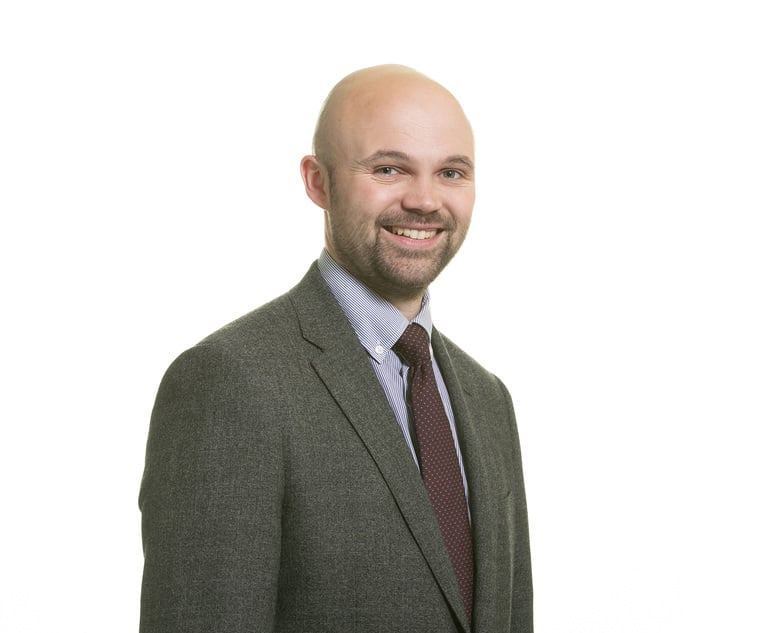DLA Piper, Quinn Emanuel Battle Over Documents in Al Jazeera Lawsuit
As Al Jazeera fights defamation claims brought by a pair of major league baseball players, the parties are duking it out over discovery and "inadvertently disclosed" documents that DLA Piper says are privileged.
April 24, 2018 at 09:29 AM
3 minute read
DLA Piper, which is defending Qatar-based Al Jazeera television network against a federal defamation lawsuit filed by two major league baseball players, accidentally released to opposing counsel at Quinn Emanuel Urquhart & Sullivan documents that it has since claimed should be returned because they are covered by attorney-client privilege.
Earlier this month a federal judge in Washington, D.C., ordered Al Jazeera to provide a privilege log that identifies each of the “inadvertently disclosed” documents, so that the network's privilege claims can be assessed.
Michael Hynes, a partner in the New York office of DLA Piper who represents Al Jazeera, said his client had complied with the order. Asked about the current status of the issue, Hynes said: “I'm not going to discuss what the court has done.”
Meanwhile, in an unrelated April 20 motion, Quinn Emanuel asked the court to compel the television network and its subsidiaries to release more documents as part of discovery. In the motion, the ballplayers reiterate their claims that Al Jazeera libeled them and invaded their privacy in a 2015 documentary suggesting the athletes took performance drugs.
The ballplayers—Washington Nationals' first baseman Ryan Zimmerman and former Philadelphia Phillies first baseman and current free agent Ryan Howard—are represented by Quinn Emanuel's William Burck, who declined to comment.
Zimmerman and Howard allege that the network ignored red flags about the documentary's claims' sole source—Charlie Sly, a 31-year-old who was presented as a pharmacist and said he supplied performance-enhancing drugs to high-profile athletes. The documentary aired and included Sly's claims, even though Sly recanted prior to its broadcast his scenario, according to the ballplayers' motion.
The pair asked U.S. District Judge Ketanji Brown Jackson to compel Al Jazeera to produce documents about its ratings, its financial investment in the documentary, its organizational charts, its staff members' texts and additional documents about Sly.
Al Jazeera has denied the lawsuit's allegations, arguing in a motion to dismiss that the documentary did not contain actionable defamatory statements about Zimmerman or Howard, because “the pertinent representations are not reasonably capable of conveying a defamatory meaning.”
The network also argued that the ballplayers' complaint fails to plead facts that would support an inference of actual malice, a necessary component, since the athletes qualify as public figures.
In a March 2017 order, however, the judge rejected Al Jazeera's motion to dismiss, concluding that “the complaint that Zimmerman and Howard have filed contains sufficient allegations to state defamation and false light claims.”
Last month, lawyers at Gibson, Dunn & Crutcher also traded motions with Al Jazeera in the case, though the nature of that dispute is not public because the briefs were filed under seal. The American Lawyer reported in 2015 that former NFL quarterback Peyton Manning had hired Gibson Dunn's Theodore Olson in the wake of the Al Jazeera report, which included an allegation that Manning had obtained human growth hormone after a potentially career-ending neck injury.
Chantale Fiebig, a partner in the D.C. office of Gibson Dunn who filed the sealed motion, declined to comment for this story.
This content has been archived. It is available through our partners, LexisNexis® and Bloomberg Law.
To view this content, please continue to their sites.
Not a Lexis Subscriber?
Subscribe Now
Not a Bloomberg Law Subscriber?
Subscribe Now
NOT FOR REPRINT
© 2025 ALM Global, LLC, All Rights Reserved. Request academic re-use from www.copyright.com. All other uses, submit a request to [email protected]. For more information visit Asset & Logo Licensing.
You Might Like
View All
Government Attorneys Face Reassignment, Rescinded Job Offers in First Days of Trump Administration
4 minute read


Trending Stories
- 1We the People?
- 2New York-Based Skadden Team Joins White & Case Group in Mexico City for Citigroup Demerger
- 3No Two Wildfires Alike: Lawyers Take Different Legal Strategies in California
- 4Poop-Themed Dog Toy OK as Parody, but Still Tarnished Jack Daniel’s Brand, Court Says
- 5Meet the New President of NY's Association of Trial Court Jurists
Who Got The Work
J. Brugh Lower of Gibbons has entered an appearance for industrial equipment supplier Devco Corporation in a pending trademark infringement lawsuit. The suit, accusing the defendant of selling knock-off Graco products, was filed Dec. 18 in New Jersey District Court by Rivkin Radler on behalf of Graco Inc. and Graco Minnesota. The case, assigned to U.S. District Judge Zahid N. Quraishi, is 3:24-cv-11294, Graco Inc. et al v. Devco Corporation.
Who Got The Work
Rebecca Maller-Stein and Kent A. Yalowitz of Arnold & Porter Kaye Scholer have entered their appearances for Hanaco Venture Capital and its executives, Lior Prosor and David Frankel, in a pending securities lawsuit. The action, filed on Dec. 24 in New York Southern District Court by Zell, Aron & Co. on behalf of Goldeneye Advisors, accuses the defendants of negligently and fraudulently managing the plaintiff's $1 million investment. The case, assigned to U.S. District Judge Vernon S. Broderick, is 1:24-cv-09918, Goldeneye Advisors, LLC v. Hanaco Venture Capital, Ltd. et al.
Who Got The Work
Attorneys from A&O Shearman has stepped in as defense counsel for Toronto-Dominion Bank and other defendants in a pending securities class action. The suit, filed Dec. 11 in New York Southern District Court by Bleichmar Fonti & Auld, accuses the defendants of concealing the bank's 'pervasive' deficiencies in regards to its compliance with the Bank Secrecy Act and the quality of its anti-money laundering controls. The case, assigned to U.S. District Judge Arun Subramanian, is 1:24-cv-09445, Gonzalez v. The Toronto-Dominion Bank et al.
Who Got The Work
Crown Castle International, a Pennsylvania company providing shared communications infrastructure, has turned to Luke D. Wolf of Gordon Rees Scully Mansukhani to fend off a pending breach-of-contract lawsuit. The court action, filed Nov. 25 in Michigan Eastern District Court by Hooper Hathaway PC on behalf of The Town Residences LLC, accuses Crown Castle of failing to transfer approximately $30,000 in utility payments from T-Mobile in breach of a roof-top lease and assignment agreement. The case, assigned to U.S. District Judge Susan K. Declercq, is 2:24-cv-13131, The Town Residences LLC v. T-Mobile US, Inc. et al.
Who Got The Work
Wilfred P. Coronato and Daniel M. Schwartz of McCarter & English have stepped in as defense counsel to Electrolux Home Products Inc. in a pending product liability lawsuit. The court action, filed Nov. 26 in New York Eastern District Court by Poulos Lopiccolo PC and Nagel Rice LLP on behalf of David Stern, alleges that the defendant's refrigerators’ drawers and shelving repeatedly break and fall apart within months after purchase. The case, assigned to U.S. District Judge Joan M. Azrack, is 2:24-cv-08204, Stern v. Electrolux Home Products, Inc.
Featured Firms
Law Offices of Gary Martin Hays & Associates, P.C.
(470) 294-1674
Law Offices of Mark E. Salomone
(857) 444-6468
Smith & Hassler
(713) 739-1250











